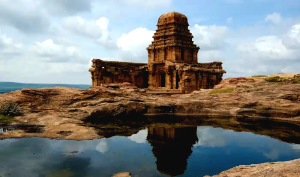Exclusive

&c0py google images
Coast Guard officer abandons child
Special Correspondent
This story is all about a "gentleman officer" of the Indian Coast Guard from Kerala, who cheated both the defence force and his own wife. The veracity of the first-hand information available here should be verified by the high offices of the Indian Coast Guard, Ministry of Defence and the Court of Law.
It is reported that the concerned officer has been serving the ICGS by filing a false affidavit about his father while joining the forces. As the information goes, the officer said his father died during his college days. But his relatives expected that his 'dead father' would come on his wedding day in 2nd June 2013, after missing for several years. One of his relatives residing abroad confirmed that his father has deserted the family and was in hiding somewhere. In reality, his close relatives and his mother and his sister knew what actually happened to his father. Only time will prove the truth.
Immediately after the wedding the newly married couple flew to Andaman Nicobar where the ICGS officer was posted at that time. Upon arrival at the airport, he said to his wife that if any of his officers or colleagues ask about his father just tell them he is no more. His wife, however, remained silent about the issue as she knew how her husband would react if anything out of place came out of her mouth. She knew how she was tortured by her husband, his mother and his elder sister about the dowry which was not to their expectations. Their first night was thus turned into a nightmare for the newly wed girl.
However, the marriage continued for about 11 years, with a girl child born to them. But now in 2024, she was issued a divorce notice by her husband. It was a bolt for the woman from the blue.
During 2023-2024, the officer was serving the ICGS HQ6 in Vishakhapatnam, where their daughter was studying in the Kendriya Vidyalaya. All the time the officer was torturing her and their child economically, mentally and emotionally as usual. He was continuously video recording the wife’s reaction after provoking her, and distributing the video to his mother and his sister. A cyber examination of his mobile would reveal many clues against his wife and child and perhaps against the ICGS forces too. One of his subordinates at ICGS Veera committed suicide in Kochi while he was serving in Kochi, without able to withstand the officer’s cruelty.
As the torturing by her husband continued, she sought medical help from the doctors at INS Kalayani Naval Hospital in Visakhapatnam. She bore all the pressure of his domestic violence till the end of the academic year of her daughter. In the meantime, she had lodged a written complaint to the officers in ICGS HQ6, and she was grilled by the officers only to ask their "gentleman officer" to dump her somewhere away from his vicinity. Despite having a ICGS quarters, the officer was sleeping in a ICGS ship in Vishakhapatnam for a year to avoid his wife and the child.
Today, she is waiting for the decree on the divorce petition filed by her husband. But the question remains for married woman of India, as how she will be compensated for her unhappy life with him and what justice she will get from the court of law for undergoing humiliation, cheating by a defence officer, and the domestic, economical and emotional torture and violence by her husband.
As this report goes to the public domain, the wife of the ICGS officer has filed a Domestic Violence case against her husband, who is reported to be living with another woman in the ICGS facility at Vadinar, Gujarat.
